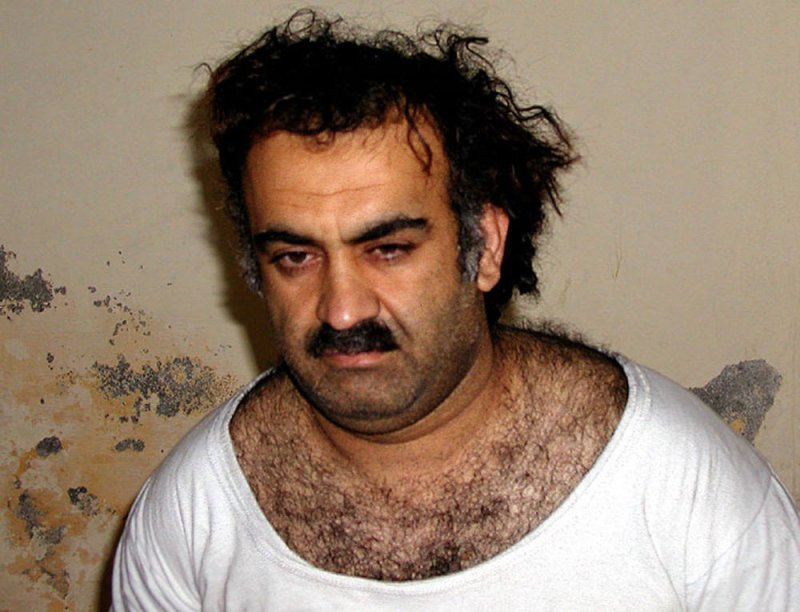Khalid Sheik Mohammed, the alleged Pakistani mastermind of the Sept. 11 attacks, is the most high-profile of the defendants whose hearings began Monday at Guantanamo. 2008 file photo. (UPI Photo/Handout) |
License Photo
GUANTANAMO BAY, Cuba, Oct. 15 (UPI) -- Hearings began in Guantanamo Bay, Cuba, Monday on what evidence can be entered in the trials of four men accused of planning the Sept. 11, 2001, terror attacks.
The hearings will determine what can be revealed to the public and even what the defendants' attorneys can know, The Miami Herald reported.
Khalid Sheik Mohammed, the alleged Pakistani mastermind of the Sept. 11 attacks in the United States, is the most high-profile of the defendants. He and four co-conspirators were present in the new military court facility, though it was unclear how much, if at all they followed the proceedings.
Mohammed, clad in a white tunic, black vest and turban, his beard dyed red with Henna, has refused to use an earphone offering Arabic translations of the proceedings. Court officials installed speakers anchored to his defense table broadcasting the Arabic translation to ensure at least nominal participation by Mohammed in his own defense.
The four men were kept in secret CIA prisons for four years before being transferred to the U.S. military facility at Guantanamo. Mohammed said he was waterboarded 183 times while in custody.
Military prosecutors say the alleged terrorists can't talk about much of what happened to them at the secret camps because that information is top secret and discussing it could reveal informants and intelligence-gathering methods.
David Nevin, Mohammed's defense attorney, calls the system "a rigged game." Because much of the evidence is flagged by the CIA as "presumptively classified," Nevin says he and his client can't discuss many things, including what Mohammed says the agency did to him.
The American Civil Liberties Union says the government should not be able to subject the men to the rigors of detention and not allow them to talk about it in court.
Attorneys for 14 media organizations will be in the court during the weeklong hearings to argue that the public has a strong right to know what happened to the men while imprisoned.















